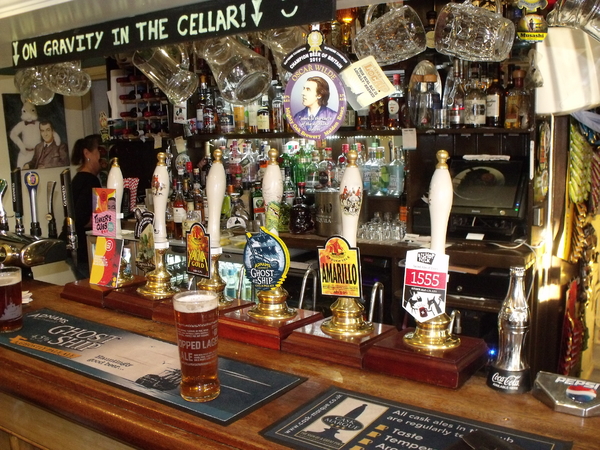Small Essex town, big pub heritage
Added: Monday, November 19th 2018
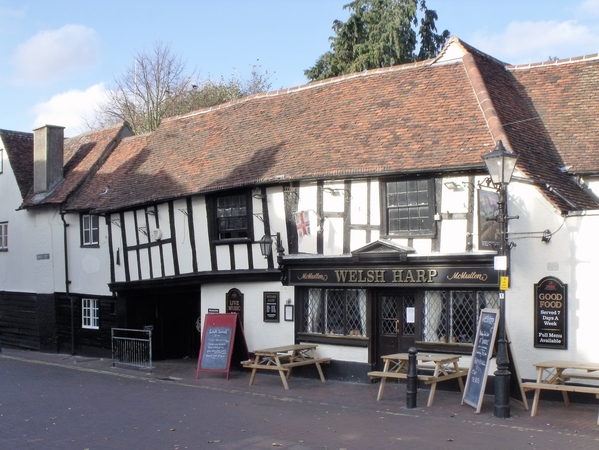
Waltham Abbey in Essex once had a remarkable claim to fame. The small market town, population 19,528, had 27 pubs in the 19th century. It boasted it had more ale houses and inns per head of population than any other town or city not only in Britain but also in Europe.
There are 10 pubs remaining and the “most pubs” title has passed to St Albans in neighbouring Hertfordshire, with 50 outlets. But Waltham Abbey still has ancient and striking pubs, with the Welsh Harp on Market Square the most eye-catching.
The half-timbered inn dominates the square. The sagging roof gives the impression the building could tumble down at any moment but it’s been there since the 15th century and is likely to survive for a few more decades yet.
The lychgate to the side of the inn leads directly into the gardens of the abbey and it’s possible the inn belonged to the immensely powerful and rich abbots until the dissolution of the monasteries by Henry VIII. A photo of the inn taken in the late 19th century shows it was owned by the London brewer Reid, which became part of Combe & Reid and then Watney Combe & Reid, which for a period was the biggest brewing group in the capital.
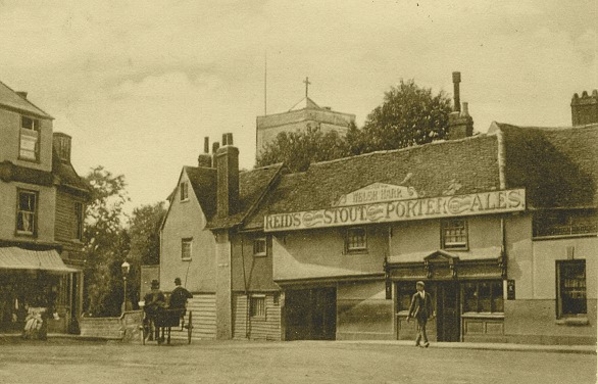
The inn is owned today by the Hertford family brewer McMullen. The name is believed to derive from the time when Welsh drovers brought cattle and sheep to London and surrounding areas for sale in markets in such towns as Barnet and Wanstead along with Waltham Abbey. A rival theory is that the inn was used by soldiers of the Welsh Regiment who came to the town when it was a centre of the armaments and gunpowder industry.
The sturdy and spacious interior of the Welsh Harp belies the slightly rickety exterior. There are massive beams, some half-timbered walls, a welcoming fire and fascinating old prints of the pub and the surrounding area. The cask beers on offer are McMullen’s renowned AK, dating from the 19th century, and the more recent addition of IPA.
There are many theories around the name AK, the most likely being a branding on wooden casks when the brewery produced a number of ales marked with a K, the A denoting the lowest-gravity beer in the range. AK was originally a pale mild though the brewery now calls it a bitter.

A two minute walk down Sun Street, off Market Square, brings you to another ancient inn at Number 21. The Sun Inn has an impressive pub sign and half-timbered exterior and has stood the test of time since 1633. Inside there are heavy beams, open fires and a large, curving bar serving a small front area and a bigger area to the rear. There’s a spacious beer garden for warmer weather.
The pub was owned by McMullen, passed to Punch Taverns and has just changed ownership to Heineken’s Star Bars & Pubs. At present, landlord Paul Smith is restricted to one cask beer, Sharp's Doom Bar.
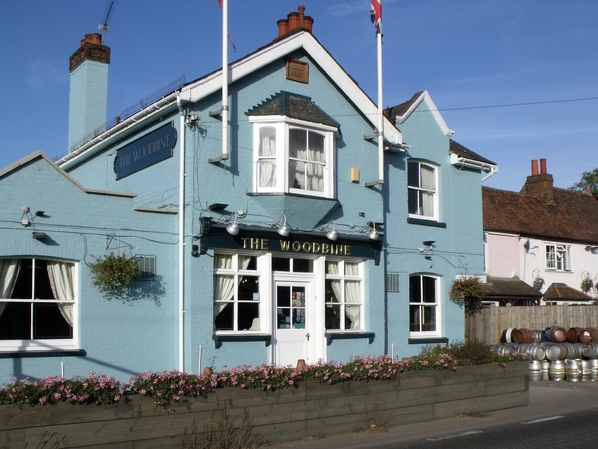
One pub that is not short of cask beer is the renowned Woodbine on Honey Lane. The pub is a short drive from the town centre of Waltham Abbey and stands proud on the road to Epping, with fine views of Epping Forest. It’s close to Junction 26 of the M25.
The Woodbine dates from the 1880s and was first run by Austin Jessop, described as “carpenter and beer house keeper”, though there’s been an ale house on the site for longer: it was originally a farmhouse that served beer. When it burned down it was rebuilt in 1887 but the current building has been much extended since then, with a conservatory the most recent addition.
It’s run today by Rob and Julie Chapman and they have won a barrel-load of awards from CAMRA for both their ales and ciders. It’s currently the 2018 East Anglian Cider Pub of the Year and Essex Pub of the Year. In total, the Chapmans have won 27 awards.
The Woodbine was once owned by the Romford brewer Ind Coope and eventually fell into the hands of Punch Taverns. Rob ran a nightclub in Beijing before returning home and he came across the pub one day when he was looking for somewhere to eat. He operated an up-market burger bar business – rated the 18th best restaurant in Essex -- but when Punch ran into financial difficulties he bought the freehold of the Woodbine and allowed the tenants to remain in the pub.
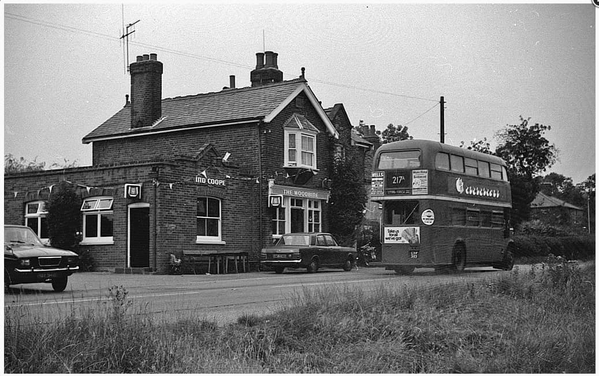
“But they ran it into the ground and handed the keys back,” he says. “I started to run a pub with no experience. I phoned the local CAMRA branch – Herts/Essex Borders – and also Crouch Vale Brewery for help and advice.”
His first beers were from Crouch Vale: Brewers Gold and Essex Boys. As a result, Rob focuses firmly on beers from the region. The current range, on a long bar groaning with hand pumps, includes Adnams Ghost Ship, Bishop Nick 1555, Crouch Vale Amarillo and Yakima Gold, and Mighty Oak Captain Bob and Oscar Wilde.
The Chapmans have served between 500 and 600 different beers since they took over. The pub is a hive of activity, with regular Meet the Brewer nights, live music including a jazz night the first Friday of the month, and gatherings of the Ale Tasters’ Society.
Excellent meals are served in the conservatory while pub and brewery aficionados will revel in the memorabilia decorating the pub walls, including an impressive Bass mirror.
The Chapmans make their own cider and are planning a micro brewery. They have made a house beer with Andy Skene of Pitfield Brewery called Woodbine Racer. Andy is from Canada where there’s an annual motorbike race called the Woodbine. The beer is impressively hopped with Amarillo, Boudicca, Centennial and Chinook.
The pub attracts walkers and hikers making their way through the surrounding forest but the Chapmans are conscious of the fact that many customers come by car. When I told Rob the Woodbine was my third visit of the day and I wouldn’t have any more alcohol, he suggested I try a glass of the 0.5 per cent version of Adnams Ghost Ship.
I was sceptical, remembering such ancient no-alcohol horrors as Barbican. But Ghost Ship was a revelation, remarkably full of taste and character.
It will make a return visit to the Woodbine even more tempting.
